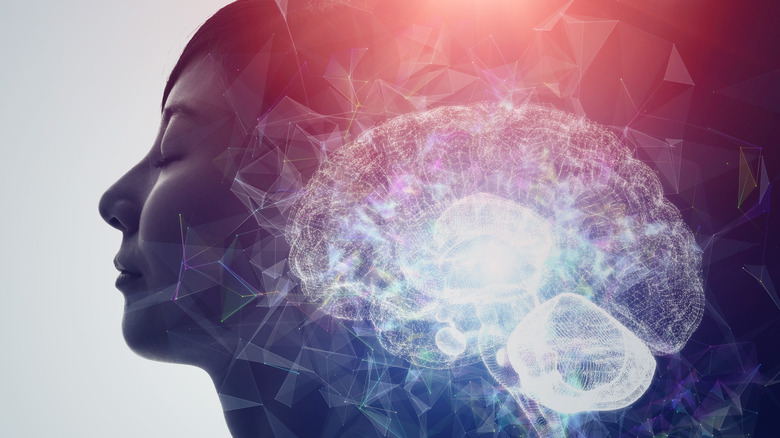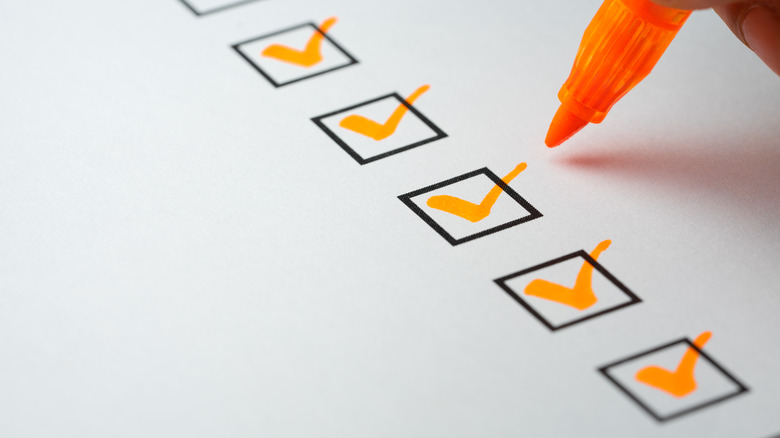The Surprising Ways You Can Train Your Brain To Release Dopamine
You may have heard of dopamine referred to as the brain's "reward system," when discussing how we as humans response to pleasurable things like food, affection, sexual contact, or even drugs; but what is it actually? Dopamine is a neurotransmitter that is naturally made by your body (via WebMD). Your nervous system uses dopamine to send messages between nerve cells, which is why it is sometimes referred to as a "chemical messenger." It not only helps us to feel and understand pleasure, but also helps us strive for things, dream of things, find things interesting or worth pursuing, and seek to alleviate feelings of stress or sadness.
You may have read that people become addicted to things like social media because of dopamine; this is because when someone "likes" or interacts with something we post, we get an immediate "reward" response in our brain and feel a sense of satisfaction (via Addiction Center). The good news, however, is that just as we can set ourselves up for becoming dependent on a substance or social media for those hits of dopamine, we can also set ourselves up for success by ensuring we get regular hits of dopamine from doing everyday tasks (via Psychology Today).
So how can we train our brains to release dopamine on demand by doing everyday things?
How to train your brain
Maybe you're a person who feels immense satisfaction when making a to-do list and checking things off one by one. There is actually a really good reason for this; when you set up that to-do list, you are setting up the expectation that when you accomplish each goal, you will feel a sense of satisfaction. That satisfactory moment is provided to you by our good friend dopamine (via Psychology Today).
The key starting this "training" for yourself, is to set several mini-goals, and then achieve them. Regularly. By breaking down larger tasks into more digestible, easily-doable tasks, you can turn your brain into, as the article puts it, "a turbo-charged dopamine factory." Knowing upfront, before you begin each task, that you will get a "hit" of dopamine as a reward for completing might help you to actually control spontaneous dopamine impulses voluntarily; meaning, the expectation of the reward and the repeated achieving of that reward teaches your brain to release dopamine each time.
Celebrating those small wins is the next step; patting yourself on the back, exclaiming "I did it!" or doing a little happy dance (however you celebrate) may also help to reinforce this and can help that release of dopamine to become the prize itself (rather than needing to reward yourself with a sweet treat or a purchase to create the dopamine you want).
So next time you feel silly for writing down, checking off, and celebrating "tiny" tasks, embrace it!

